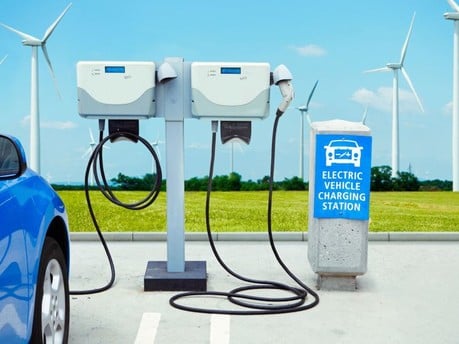Benefits of buying an electric vehicle
Discover what rewards you could reap when you opt for a zero emissions car or van
The electric revolution really is here! As the UK accelerates towards a future of zero emission vehicles, now is the time to consider the transition to an electric car or electric van.
In November 2020, it was announced the UK will end the sale of all new petrol and diesel cars and vans by 2030. By 2035, all newly manufactured cars and vans must be zero emission at the tailpipe.
So what are the benefits of driving an electric vehicle? Here at Octane Finance we want to make sure you’re fully up-to-speed; in this article, we explain all the advantages of owning an electric car or electric van…
Cleaner and greener for the environment
One of the biggest advantages of owning an electric vehicle is the environmental benefits. Unlike standard combustion engine cars or vans fuelled by petrol and diesel, an electric vehicle is powered by a battery so there are no exhaust emissions whatsoever - it’s better for you and better for the environment.
No hefty fuel prices
Say goodbye to rising fuel costs; investing in an electric vehicle means you’ll never need to refill at a petrol station ever again - now that must be music to your ears! Electric cars and vans are powered by charging the battery unit using an electric charge point, which works out far cheaper than current fuel prices.
Government grant perks
The UK Government is helping drivers make the switch to electric cars and electric vans thanks to a number of grant-led schemes. As well as contributions towards the cost of purchasing a new EV, motorists can access schemes to reduce the costs of installing an electric charger at home or work too.
Overall better driving performance
If you think an electric vehicle won’t perform as well as its combustion engine cousin, then think again! In fact, you’ll be pleasantly surprised to hear that an EV outperforms petrol and diesel vehicles. Thanks to its lower centre of gravity, an electric car or van’s handling is much improved, as is the responsive acceleration due to instant power from the battery.
Less maintenance needed
Any motorist who hears the words ‘vehicle maintenance’ shudders at the thought of associated inconvenience and cost. The good news is that electric vehicles don’t need many of the maintenance checks or servicing like their petrol or diesel equivalents. Due to fewer moving mechanical parts, an electric vehicle is generally cheaper to maintain - just make sure the car or van’s battery is covered by a warranty (most manufacturers usually offer this as standard).
Tax-free benefits
As a zero emission vehicle, electric cars and electric vans are exempt from road tax (also referred to as Vehicle Excise Duty) throughout the duration of your ownership. This alone can save you hundreds of pounds a year compared to the cost of owning a petrol or diesel vehicle.
Free of congestion charges
Are you a regular visitor to London? If so, say goodbye to inconvenient and pricey congestion charges. Thanks to a zero emission tailpipe, an electric vehicle is allowed to travel freely through congestion charging zones in the capital and other major cities that have imposed similar restrictions.
Entry to Ultra Low Emission Zones
As with the congestion charge zones, electric vehicles aren’t restricted within Ultra Low Emission Zones (ULEZ) or associated Low Emission Neighbourhood (LEN) zones either. It's win-win if you’re a driver in London or one of the major cities across the UK that has introduced a similar restricted area.
Opportunities for free parking
Parking can be expensive, so you’ll be pleased to know that many towns and cities offer free parking, or priority parking bays for electric vehicles. In short, electric car and van drivers are rewarded for their environmental vehicle choices, so it pays to go green!
Reduced noise
It’s not just exhaust pollution that is caused by petrol and diesel vehicles, noise pollution is a contributing factor too - but not with an EV! In fact, battery-powered vehicles are so quiet that the law now states an electric car or van needs to be fitted with an Acoustic Vehicle Alerting System (AVAS) when reversing or at low speeds.
Retains resale value
If you’re not planning on keeping hold of your electric vehicle long-term, then it’s worth noting that second-hand electric vehicles have a better resale value thanks to the many great benefits of owning one.
Explore the road to EV
Now that we've explained more about the benefits of buying an electric vehicle, it’s time to consider the urgency of making the transition to EV. As we mentioned in the start of the article, all new cars and vans must be zero emission by 2035, but how realistic is this deadline and how will we get there?
To help us understand more, the Government has created a dedicated ‘Transitioning to zero emission cars and vans: 2035 delivery plan’ booklet to explain. From the booklet, we’ve shared below the ‘Road to 2035: Timeline of key deliverables’ graphic to give you a better idea of the journey to a zero emission future…


